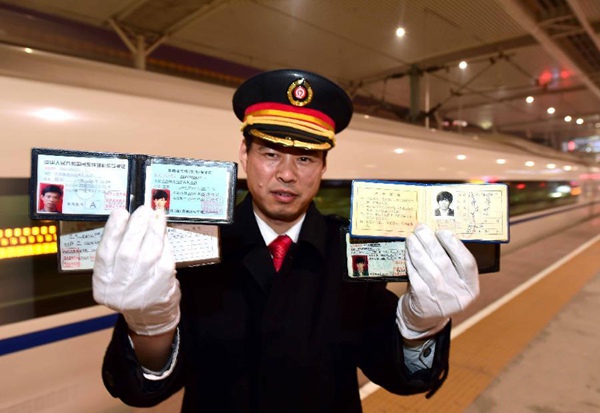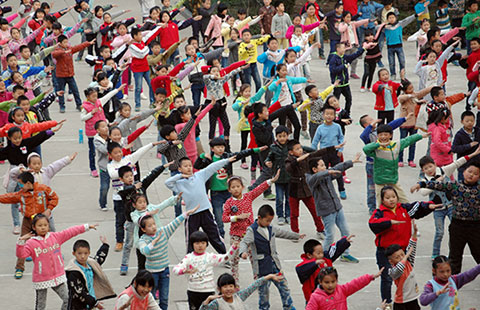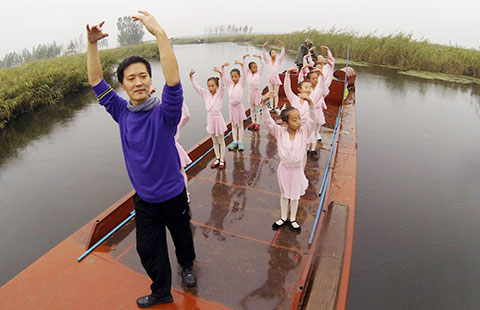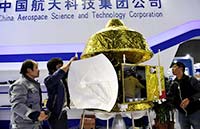Railway career captures driver's imagination for the long haul
By ZHAO RUIXUE (China Daily) Updated: 2015-06-22 08:27
 |
|
Xue holds his four driving licenses.[GUO XULEI/XINHUA NEWS AGENCY] |
"It is fully weatherproofed and without the dirt and heat that was inevitable when operating a steam locomotive," said Xue.
"We have fans and electric stoves to boil water. On a steam locomotive, we needed to use a shovel to hold the kettle in the firebox," Xue recalled.
After driving diesel locomotives for 14 years, Xue began to drive electric locomotives after getting a license in 2006.
"Amenities-including a refrigerator, microwave oven, electric heater and air conditioner-are in the driving room of an electric locomotive," he said. "And we don't need to clean the locomotive by ourselves anymore."
For a diesel locomotive, the two drivers had to spend about two hours cleaning the cabin, Xue said.
"Now the cleaning equipment can finish the work within 15 minutes," he said.
Xue said electric locomotives are quiet because there is no engine noise and less mechanical noise.
After bullet trains took to the tracks to transport passengers, Xue got that license in 2008.
He compared the examinations for the bullet train license to China's college entrance examination, or gaokao.
"It's even more difficult than the gaokao," he said. "We have more than 500 pages of theoretical knowledge to learn."
Xue failed the examination the first time he took it.
"It's really difficult for a person like me who is over 40 years old to memorize so many theories, such as the train's structure," he said.
Psychological and etiquette training have been added to a drivers' training courses, said Xue.
Last May, his driving license for the bullet train was upgraded to one that certifies he can drive bullet trains running as fast as 350 km/h.
Xue gave special thanks to his wife for his success. "If my parents or child get sick, she won't tell me during my work time to ensure I can focus on work," said Xue.
The experienced driver feels a little sorry for his son, who works in a field unrelated to the railway system.
"I do hope he can work as a train driver, witnessing how our trains will develop in the future in the same way I did over the past three decades," he said.
- China to speed up restructuring of zombie SOEs
- Singapore plays positive role in ties between mainland and Taiwan
- Success of Fox Hunt campaign continues
- SOE changes aim to improve efficiency
- Major farm reform on the horizon
- Deadline set for hukou revisions
- Tibetans weave faith into music
- Xi-Ma meet to lead cross-Strait high-level exchanges
- English skills slip in China: survey
- Xi to meet Taiwan leader in Singapore







